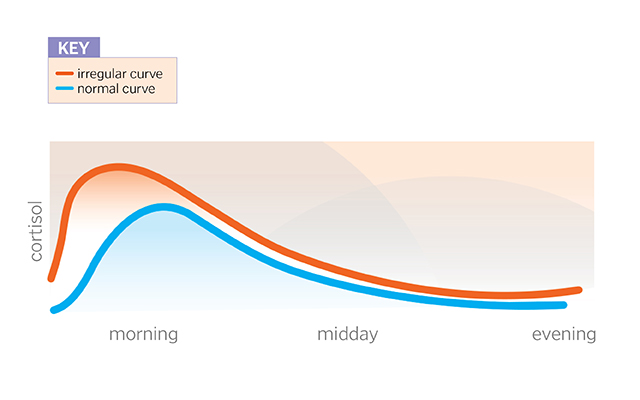 Understanding Our Stress Hormone Cortisol
Understanding Our Stress Hormone Cortisol
Written By Bryce Smith
People often ask when the most ideal time to train is. Depending on when you wake up, I believe the most optimal training time is between 9am and 3pm. This is a very large window, however, this has to do with cortisol production. Cortisol is our stress hormone and training spikes cortisol. Cortisol is known to increase wakefulness, mobilize stored energy, helps the body prepare to face stress, alerts the brain and central nervous system by converting noradrenaline to adrenaline (1). Cortisol often gets a bad wrap, but when used properly, cortisol can be very useful, especially in fitness.
The typical cortisol cycle is high in the morning and gradually comes down throughout the day (see image below). For this reason, training super early in the morning (before the sun rises), and super late at night (after the sun goes down) is not ideal. The best, most optimal time to train is earlier in the day, ideally between 9am and 3pm. Cortisol begins to decline in the evening and puts your nervous system into a parasympathetic mode which is also known as rest and recover mode. This allows you to sleep, recover, and get a higher production of growth hormone (1).

Cortisol and insulin inversely oppose each other. Insulin is what spikes when we have sugar, glucose, or carbohydrates. This means that when cortisol is high, blood sugar is low. For this reason, I recommend having protein and fats in the morning, and starchier carbohydrates post workout and with your last meal. This can obviously be tweaked through trial and error and changed given an athletes needs, but it is always good information to have.
I do not always recommend that people train in the evening because it elevates cortisol levels and makes falling asleep much harder. If training in the late evening is your only choice, then it is better than nothing, but due to the bodies natural cortisol curve, evening training is not the best choice and may hinder recovery and optimal hormone production.
If you regularly train in the evening, this could lead to chronically elevated cortisol levels. This means your body is chronically in a stressed state which breaks down protein and puts your body in a catabolic state (muscle breakdown) rather than an anabolic state which helps muscle growth and aids in adding muscle tissue (1).
Now that we understand what cortisol is and how it affects training, the more we can make it a goal to respect the natural cortisol curve and optimize training timing and recovery. Spiking cortisol during the day rather than during the book ended parts of the day may really enhance your fitness progress as it is your body’s natural cycle.
Some people can pull off evening training if their circadian rhythm has been adjusted through habits, shift work, or late night adaptations. Some people have elevated levels of serotonin and gaba which enable them to shut down their central nervous system and get into a parasympathetic (rest and recover) mode faster than most (1). Ingesting carbohydrates post workout can also create a rapid insulin spike which helps control cortisol levels and enhance recovery. Consider all this when you are choosing your training time and if you have the flexibility to do so, 9-3 is the best time!
Citations:
Andrews, Ryan. “All About Cortisol.” Precision Nutrition, 3 Oct. 2017, www.precisionnutrition.com/all-about-cortisol.